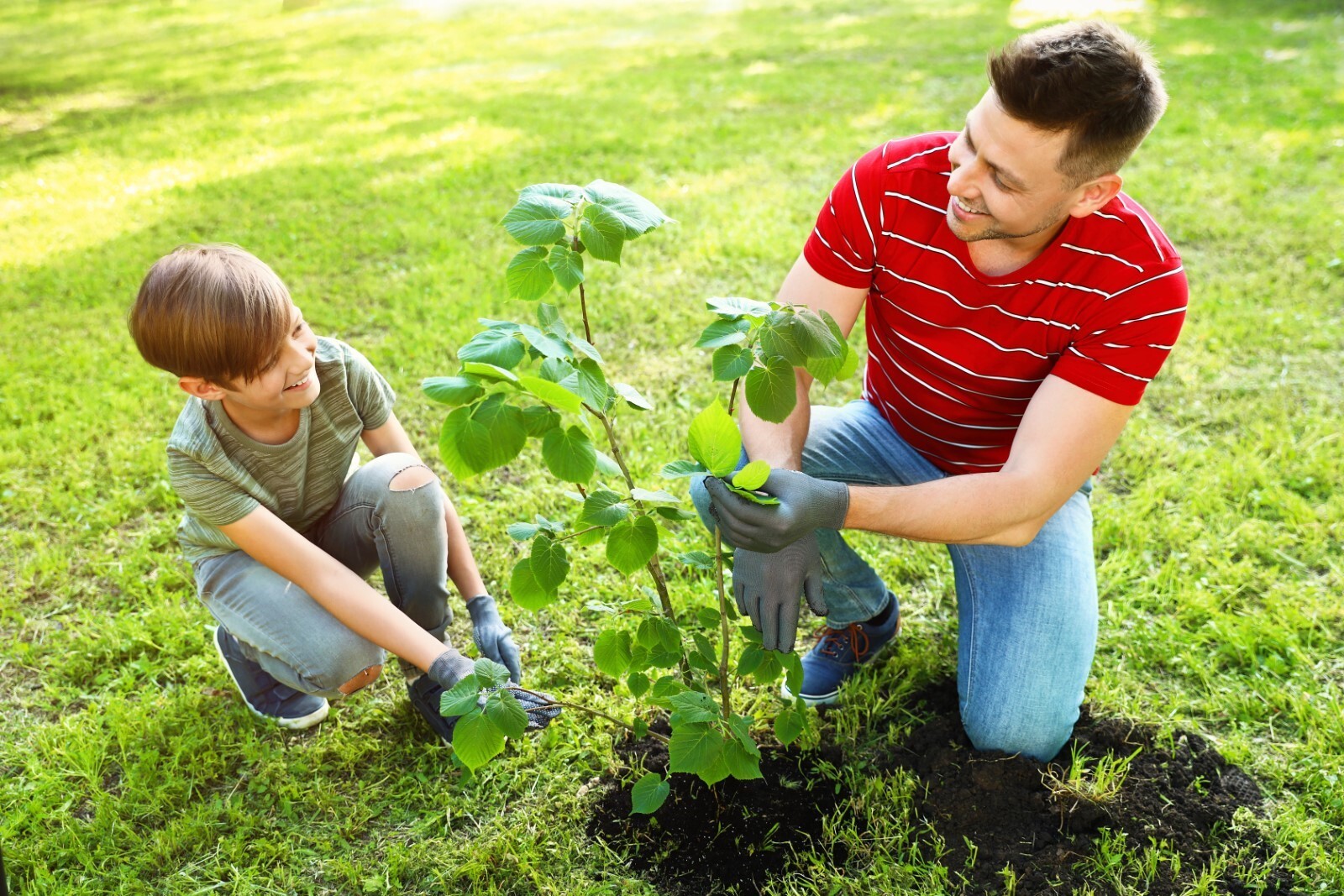Hey Danvers! As warmer weather returns, many residents are thinking about yardwork and outdoor projects. These activities are more than just seasonal chores—they’re an opportunity to make your property work for the environment and your wallet.
Landscaping with sustainability in mind can help reduce energy bills, manage stormwater, and lower summer temperatures around your home. With the right strategies, your yard can be part of the solution to local climate challenges. Here are four ways to get started plus additional tips for renters.

1. Plant a Shade Tree
Planting a tree may seem like a small action, but the benefits are substantial. Well-placed shade trees can reduce cooling costs by up to 35% by blocking sunlight and lowering surrounding temperatures. They also improve air quality, absorb stormwater, and make your yard more comfortable during hot summer days.
Whether you’re adding a single tree or planning a longer-term yard design, selecting the right species and location is key. The Arbor Day Foundation offers a helpful guide to tree selection and placement based on your home’s needs.
- Learn more: Tree Resources for Summer Shade

2. Install a Rain Garden with Native Plants
Rain gardens are designed to collect and absorb runoff from roofs, driveways, and sidewalks. Instead of allowing stormwater to carry pollutants into storm drains, a rain garden filters the water and slowly releases it into the ground.
They also support pollinators and local biodiversity—especially when planted with native species that thrive in our climate. If you’re not sure where to begin, the Massachusetts Native Plant Palette is a great starting point.
Bonus: The Danvers Garden Club’s Plant Sale is coming up on Saturday, May 17—a great opportunity to pick up native plants and get advice from local experts.
- Explore native plant options: Massachusetts Native Plant Palette
- Details on the plant sale: Danvers Garden Club Plant Sale

3. Use Water Wisely with a Rain Sensor Rebate
Automatic irrigation systems are convenient—but they can waste a lot of water if they’re not set up efficiently. One easy upgrade? A wireless rain sensor that prevents watering when it’s not needed.
- Danvers offers a $100 rebate for qualifying wireless rain sensors. These must be added to an existing irrigation system that doesn’t already have one or must replace a wired sensor. New irrigation systems don’t qualify. Rebates are available through online submission or by mail with supporting documentation.
- For full details, including eligibility and forms, visit the rebate page: Water Conservation Rebates

4. Irrigate and Maintain Responsibly
Even without a rebate, there are smart ways to keep your yard healthy without overusing water:
- Water early in the morning or late in the evening to reduce evaporation.
- Group plants with similar water needs to avoid overwatering.
- Use mulch to retain soil moisture and suppress weeds.
- Regularly check for leaks in your irrigation system.
Every gallon saved helps conserve water and protect local resources, especially during dry spells.

Bonus: Tips for Renters
Not every resident owns their yard, but that doesn’t mean you’re shut out from sustainable gardening. Here are a few renter-friendly ideas:
- Container gardening: Grow herbs, veggies, or pollinator plants in pots on a porch, patio, or balcony.
- Skip the chemical fertilizers and pesticides: They can harm local waterways and wildlife—and many container plants don’t need them.
- Join a community garden: Danvers and the North Shore have several options for shared growing space.
- Collect rainwater: Even a small barrel or bucket can go a long way for watering your plants naturally.
Thanks for reading—and for doing your part to support a more resilient Danvers. Keep an eye out for the Resilient Danvers Sustainable Landscaping Guide, coming in the future with even more tips and resources.
Previous Post
Earth Month 2025
Next Post
Sustainable Summer 2025

